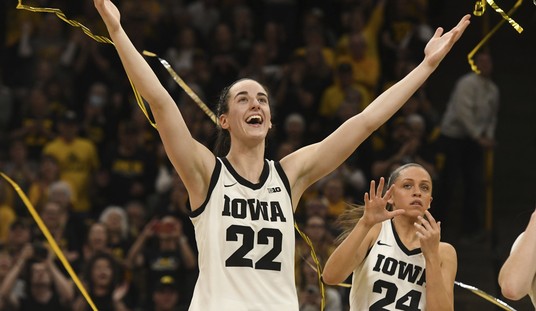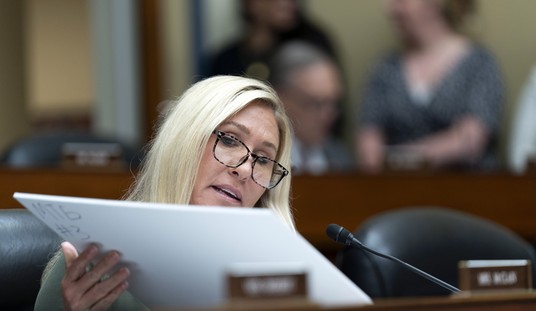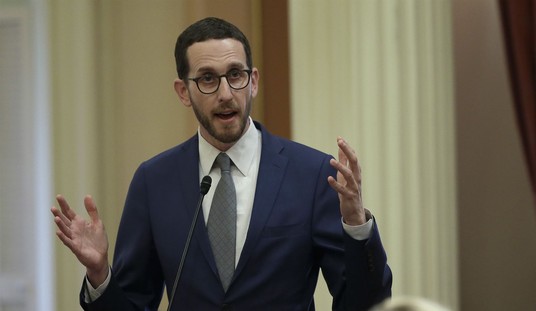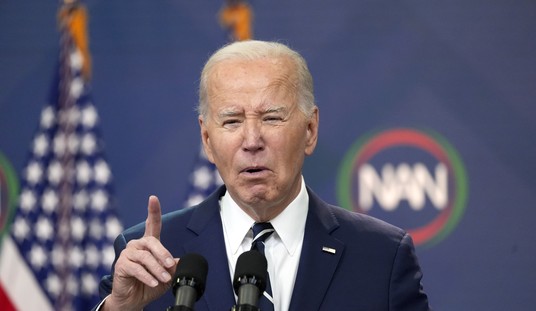Can I not have one g-ddamned day of hope?
Just one day. In the middle of an endless waking nightmare.
Jeremy Faust is the doctor in Boston who wrote a couple of pieces early in the epidemic for Slate, arguing (presciently) that the true fatality rate for COVID-19 was probably far below the three-percent figure gleaned from China’s Wuhan data. If it were really that high, he reasoned, we would have seen more dead on the Diamond Princess cruise after a huge number of passengers became infected. He’s been commenting sporadically on Twitter since then and noticed the enthusiasm over yesterday’s exciting partial data about Gilead’s experimental antiviral, remdesivir.
That’s nice, said Faust, but there are two methodological problems with the data from the Chicago hospital that produced it. One: No control group. There’s no way to tell whether the drug is truly helping a particular class of patients in a particular location unless we can compare how they’re faring to how a similar group of patients is faring without it. There are some encouraging signs from remdesivir in other small studies that do involve control groups…
Scientists infected two groups of six rhesus macaque monkeys with SARS-CoV-2 (the new coronavirus which causes COVID-19 disease) so they developed a lower respiratory tract infection.
12 hours after the animals were infected, and once a day for six days thereafter, the team either gave the animals remdesivir intravenously or a control substance which didn’t contain the drug…
Compared with the control group, the animals given remdesivir “did not show signs of respiratory disease” and scans showed their lungs contained less substances linked to pneumonia…
Autopsies revealed the viral load in the lungs of animals given the drug “were significantly lower and there was a clear reduction in damage to the lung tissue,” according to the study.
…but no one’s going to draw any hard lessons about the drug’s benefits to humans based on what it did to six macaques. We need a clinical study of people involving a control group to feel more confident that it’s effective. That’ll come, but not yet.
Two: People — like, er, me — overestimated how dire the condition was of those who received remdesivir in the Chicago study. In my post yesterday I compared the sample of “severe” patients in Chicago to a sample of British patients receiving “critical” care. Biiiiiiig difference, said Faust.
The study *excludes* those with multi-organ failure, abnormal liver tests, moderate kidney disease, needing mechanical ventilation at time of first evaluation, needing mech ventilation for 5+ days. Reality: *SEVERE cases not the sickest patients. *CRITICAL is the worst category.
— Jeremy Faust MD MS (ER physician) (@jeremyfaust) April 17, 2020
Ok. Let's move on to….Assumption 2: SEVERE cases are…SEVERE. Right? They are very likely to die, right? So we should definitely be studying these ones. Right? Well… How many patients with SEVERE covid19 usually die. Wait for it. Waaaait for iiiiit…
— Jeremy Faust MD MS (ER physician) (@jeremyfaust) April 17, 2020
(Not saying I want severe covid19, thank very much. But I'll take it a million times over "critical." Cuz that's when a ton of patients start dying.
— Jeremy Faust MD MS (ER physician) (@jeremyfaust) April 17, 2020
Now…I think I hear you saying….wait a sec! In China (where they weren't all getting Remdesivir), ZERO severe cases died? And now in the US out of 113 patients with "severe" covid19 getting the drug, and TWO patients died. Uh oh… Does that mean….
— Jeremy Faust MD MS (ER physician) (@jeremyfaust) April 17, 2020
But the two ways you can spin the data proves my point. It shows why you have to do randomized controlled trials.
You know…like grownups!
— Jeremy Faust MD MS (ER physician) (@jeremyfaust) April 17, 2020
You can read his full thread here but that’s the key bit. Critical patients are at death’s door; severe patients are, well, they’re having a bad time of it but they’re not at the ICU stage yet. Here’s the study he mentions from February, citing Chinese data on many thousands of patients, that found “No deaths were reported among mild and severe cases. The CFR was 49.0% among critical cases.” Patients who needed a ventilator were actually excluded from the Chicago study. Does all of that mean remdesivir doesn’t work in critical cases, or might work better if administered to patients before the severe stage? No, of course not. But it does mean we shouldn’t draw conclusions about the drug’s efficacy based on yesterday’s news.
Analysts are warier about the results than the general public too, as tends to happen when big money is on the line. “[I]t is difficult to interpret this new information without more data on the severity of illness in the patients discussed,” said one at Morningstar, declining to raise her forecast for shares of Gilead. Others noted the lack of a control group, while another was skeptical of the results on the merits, saying, “‘Rapid recovery’ of fever and symptoms seems like conjecture given in our view it is incongruent with the mechanism of remdesivir, a direct antiviral.” One analyst at Cantor Fitzgerald sniffed about last night’s surge in Gilead’s value, “We would have thought that kind of reaction would have been reserved for positive clinical trials.”
What they don’t understand is that Gilead’s not selling remdesivir. They’re selling hope. The scarcest commodity there is.
Anyway, I solemnly promise you that I won’t let this chastening deter me from wildly overreacting the next time we get another tiny crumb of good news about the drug. Until then, here’s the WSJ with its own version of a “slow your roll.”
Gilead’s potential Covid-19 treatment may show some promise but investors may want to think twice. @djtgallagher explains why. #WSJWhatsNow https://t.co/EGq9kWewju pic.twitter.com/sBrAvUkdQH
— The Wall Street Journal (@WSJ) April 17, 2020







